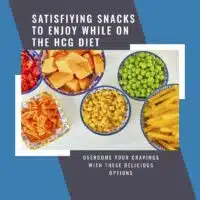The HCG (human chorionic gonadotropin) diet has become an increasingly popular weight loss method in recent years. This diet combines an ultra-low calorie plan along with taking HCG supplements or injections.
HCG is a hormone produced during pregnancy that proponents claim helps suppress appetite. However, there is no scientific evidence it boosts weight loss beyond severe calorie restriction.
While potentially effective for short-term weight loss, the HCG diet is very restrictive and controversial. It also requires purchasing HCG products and specialty foods, making it an expensive endeavor.
Key Facts on HCG Diet Costs
-
Total costs depend on the length of the diet, HCG product choices and more.
-
Buying prescription HCG injections is the most expensive option.
-
Over-the-counter HCG supplements are cheaper than prescription HCG.
-
The recommended foods tend to be pricier low-calorie options.
-
Additional supplements, coaching and other services can add to costs.
“In the United States, the medical costs related to obesity were estimated at $147 billion in 2008.” – Centers for Disease Control and Prevention
Below is an overview of the typical costs associated with following the various phases of the HCG diet protocol.

Phase 1: Loading Phase Costs
The first phase of the HCG diet is the 2-4 day loading phase. During this phase, the goal is to consume plenty of calories, fats and carbohydrates.
Potential costs for this phase can include:
- High-fat foods: Meat, dairy, oils, nuts, avocado – $75+
- High-carb foods: Bread, pasta, fruits – $50+
- HCG supplements: Drops, pellets or sprays – $50+
- Initial doctor visit: If getting prescription HCG – $100-$300
This phase helps prepare your body for the very low calorie diet. Stocking up on the recommended loading foods for a few days can easily cost over $100 or more.
Phase 2: Very Low-Calorie Diet Costs
The second phase is the most extreme part of the diet, limiting calories to just 500-800 per day for 3-6 weeks. Costs for this phase may include:
- HCG: Ongoing injections, drops or sprays – $100-$700
- Lean protein: Chicken breast, white fish, shrimp – $3-$8/serving
- Fruits: Strawberries, grapefruit, apples – $3-$5/serving
- Vegetables: Spinach, tomatoes, asparagus – $2-$4/serving
This phase requires sticking to specific foods and portions, which can get expensive. Total costs depend largely on the length of this phase.
Phase 3: Maintenance Phase Costs
The final phase slowly reintroduces higher calories over 3-4 weeks. Costs in this phase may include:
- Doctor visits: For transitioning off HCG – $100-$200
- Supplements: Electrolytes, vitamins – $20-$50
- New foods: Whole grains, starchy veggies – $50+
This phase focuses on keeping weight off long-term. Expenses are lower but doctor visits and supplements still add costs.
Additional HCG Diet Expenses
Some other common expenses people incur with the HCG diet include:
- HCG diet coaching: $100-$300+ per month
- Recipe books and meal plans: $20-$40
- Food scale: $10-$30
- Fitness trackers: $20-$250+
- Multivitamins: $10-$20
Having a coach, guidance and the right tools can optimize success but also drive up costs substantially.
Ways to Reduce HCG Diet Costs
Here are some tips to help save money on the expenses of an HCG diet:
-
Choose over-the-counter HCG drops or sprays instead of prescription HCG injections.
-
Buy generic brands instead of name-brand HCG products.
-
Shop at discount grocery stores and buy fruits/veggies in season.
-
Cook at home instead of purchasing prepared diet foods.
-
Join an online support group instead of paying for a coach.
-
Borrow books and resources from the library instead of purchasing.
-
Use free apps and websites for diet plans and tracking instead of paid programs.
Average Total Costs of the HCG Diet
To give you an idea of the total average costs of the full HCG diet protocol, here is an overview:
- Loading phase: $100-$300
- Very low-calorie phase: $300-$1,000+
- Maintenance phase: $100-$300
- Additional expenses: $100-$500+
Total average cost for a full 6-week HCG diet: $600 – $2,100+
This estimate shows how costs can vary widely based on the specifics of each diet plan. Longer diet durations, premium HCG products and added services increase overall costs.
Is the HCG Diet Worth the Cost?
With most HCG diet plans costing a minimum of $600 for a full 6-week protocol, it is an expensive endeavor. The steep costs raise the question of whether it is worth it for the amount of weight loss achieved.
Potential benefits that may help justify the costs:
- Rapid weight loss in a short period
- Reduced risk factors for certain diseases
- Improved self-confidence
- Motivation to make long-term lifestyle changes
However, there are also many risks and drawbacks:
- Weight regain is common after stopping
- Loss of muscle mass and lowered metabolism
- Nutrient deficiencies and health complications
- Restrictiveness makes sustainability difficult
Carefully weigh the pros and cons before committing to the costs of an HCG diet. More research is still needed on its safety and long-term results. Often making incremental nutrition and exercise changes is a cheaper and healthier approach.
The Bottom Line on HCG Diet Costs
While potentially fast and effective for short-term weight loss, completing the full HCG diet protocol comes at a steep cost in most cases. Prices vary based on the length of the diet, types of HCG products used, additional services pursued and more.
On average, most people spend a minimum of $600 up to over $2000+ on the complete HCG diet. Determine if the benefits outweigh the costs for your individual situation before proceeding. Achieving lasting results requires making sustainable lifestyle changes that don’t come with such a high price tag.
Sources:
https://health.usnews.com/wellness/food/articles/the-hcg-diet-may-help-you-lose-weight-but-at-what-cost
https://www.baltimoresun.com/health/bs-hs-hcg-diet-20110615-story.html
https://www.eatingwell.com/article/8036881/what-is-the-hcg-diet-is-it-safe/
I’m Amy, a health blogger who’s passionate about helping people achieve their weight loss and wellness goals through evidence-based information and practical tips on nutrition, exercise, and self-care. When I’m not blogging, I enjoy hiking, practicing yoga, and experimenting with healthy recipes in the kitchen.







